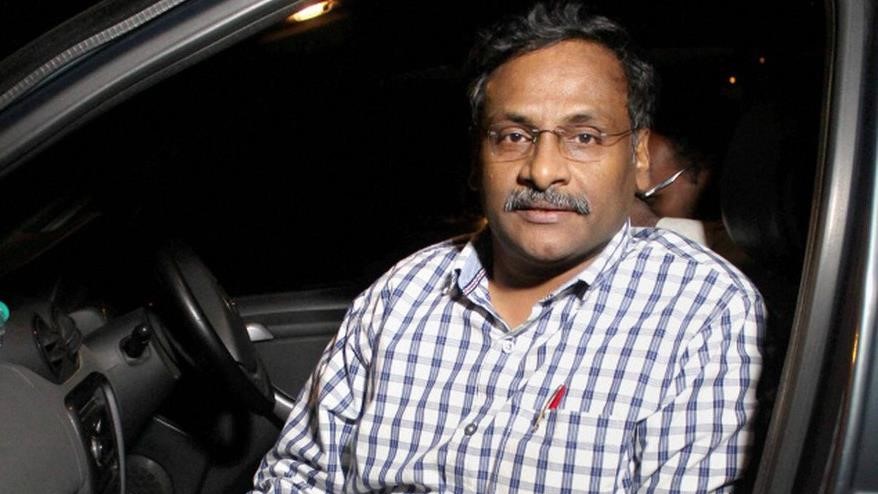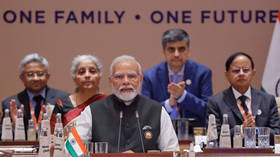
by Lekha Adavi
Popular cinema plays an important role when we examine the development of a society. While it is necessarily true that popular culture like cinema reflects society and its values, its ideas also leave an indelible mark on the society.
Cinema influences people in a way that it mirrors, reinforces and adapts their perceptions, biases and prejudices. For instance, Hollywood has made it its business to “reflect” popular perceptions about Communism, and yet what it achieves is to demonise the ideology and justify the hunting down of communists in the McCarthy era. Similarly, Hollywood has exported enough of its heroes in various films, to all corners of the Islamic world to ‘rescue democracy from the hands of the barbaric Islamic fundamentalists’, to create a public consensus about US invasion into, and imperialist wars on, Afghanistan or Iraq.
With the diverse vernacular film-culture of India, and each region having an industry of its own, the country’s movie industry has developed a market all over the world. Post-Independence cinema foregrounded the development agenda of Nehruvian socialism and the cultural plurality of the country – the industry matched the agenda of the State in its onward journey. Cinema reflected what the Indians adopted into the Constitution – the values of secularism, fraternity and social justice, and simultaneously sought to spread these values in society. Interestingly, later as trade union militancy grew, popular Bollywood cinema, including ‘Aghaat’, ‘Kaala Patthar’, ‘Namak Haram’, etc., promoted the rights of workers. Similarly, the corruption in politics and society, unemployment, rural distress, communal violence, etc., all found expression in popular cinema, most notably in the Bollywood film ‘Rang De Basanti’, made during the UPA era.
When Narendra Modi rode to power in 2014 on a carefully packaged and marketed so-called development agenda with the slogans of ‘Sab ka Saath, Sabka Vikas’ and ‘Swacch Bharat’, it was unsurprising that Bollywood had a role to play thereafter. The BJP has used state power to advance its agenda of Hindutva, and simultaneously unleashed the power of cinema to propagate their narrative. With the frontrunner Swacch Bharat Abhiyan, Modi was seen sweeping and promoting the campaign with awards, etc., while Bollywood movies like ‘Toilet: Ek Prem Katha’ and ‘Pad Man’, with Akshay Kumar in the lead, were produced as if it were a publicity campaign for the government. The red herring of ‘urban naxals’ raised by the RSS was sought to be pushed into public consciousness through the Vivek Agnihotri film ‘Buddha in a Traffic Jam’, which spoke about Maoists and corruption and vilified the Left.
While Modi’s first term tested the waters of Indian society to further Hindutva, Modi 2.0 saw an all-out campaign to further this agenda. Unsurprisingly, this saw a spate of Bollywood films which either attacked the opposition or glorified Indian monarchs and freedom fighters for their ‘Hindu’ identity, or were plain Islamophobic. ‘Tashkent Files’ released in 2019 was on the death of former Prime Minister Lal Bahadur Shastri which was criticised to be a politically motivated film that exploited the former Prime Minister’s death to attack the Left, secular and socialist ideologies and institutions . In the run up to the Lok Sabha elections in 2019, ‘The Accidental Prime Minister’ was released in January 2019, and was based on the former Prime Minister Manmohan Singh who was portrayed as a victim of the Nehru family’s dynastic approach to Indian politics. After the Election Commission postponed the release of the biopic ‘PM Narendra Modi’, which showed the life and struggles of the Prime Minister till the time he assumed power in 2014, the film was released in May 2019. A trailer of the film titled ‘Swatantra Veer Savarkar’ was released on May 28th, 2023; the same day when the new Parliament building was inaugurated.
Even as films were being made on the lives of Indian politicians which would suit the narrative of the regime, films based on Indian monarchs, who were portrayed to be ‘Hindu Kings’ protecting their motherland against the Mughal invasion were also produced. ‘Bajirao Mastani’ (2015) praised the rule of the Brahmin King Peshwa Bajirao, ‘Padmavat’ (2018) narrated the life of Rani Padmavati and her Rajput husband, who were threatened with invasion by the Afghani-ruler Allauddin Khilji, ‘Manikarnika’ (2019) was based on the life of Jhansi’s Rani Laxmibai, ‘Panipat’ (2019) narrated the story of Maratha warrior Sadashivrao Bhau who fought against Afghan King Ahmad Shah Abdali, ‘Kesari’ (2019) showcased the life of Havildar Ishar Singh, a soldier in the British Army who led 21 Sikh soldiers against thousands of Pashtun soldiers. ‘Tanhaji’ (2020) was based on the life of the Maratha warrior who fights against Mughal invasion to safeguard the Kondhana Fort. ‘Pawankhind’ on Chatrapathi Shivaji Maharaj and ‘Samrat Prithviraj’ were released in 2022. The recent release of ‘Adipurush’ (2023), which is based on the Hindu epic Ramayana, has evoked a strong reaction from the Hindu groups who have raised objections to dialogues, scenes and character representation.
In the run up to the Lok Sabha elections in 2024, a biopic on the life of RSS-founder KB Hedgewar and the BJP icon Deen Dayal Upadhyay is impending release, along with a film on Chhatrapathi Shivaji by title ‘Vedat Marathe Veer Daudle Saat’.
We also seen the release of ‘The Kashmir Files’ (2022) and ‘The Kerala Story’ (2023), which seek to demonise the entire Indian Muslim community and are used to stoke communal hatred. Both the movies also introduce an anti-Left discourse by using pictures of Marx, Lenin and Stalin to warn its viewers against the “western” ideology . Right after the release of the film and at a parliamentary group meeting of the ruling party – BJP, the Prime Minister endorsed the film. He said that the film has established the truth that was suppressed for years, and that everyone should watch it . At an election rally in Bellary (Karnataka) 2023, the Prime Minister endorsed ‘The Kerala Story’, which had just then been released and claimed that the movie unearthed a “conspiracy”. Alongside the Prime Minister himself, several other Union Ministers promoted both the films and declared it to be tax-free in several states. Special screenings were organised and government employees and police personnel were granted holidays to go watch the film. Such promotion of the two films that is openly Islamophobic and anti-Left, is a marker of how the government is invested in these films.
The release of both the films were marked with anti-Muslim violence in many states. When ‘The Kashmir Files’ was released, members of the Hindu Jagran Manch raised the slogan to “shoot the traitors” in a cinema theatre, several viral videos called for boycott of Muslim-owned businesses, and instances where people openly claimed that the film had “opened their eyes” to “fight for their rights”, to justify attacks against Muslim community were witnessed. In May 2023, Maharashtra’s Ankola witnessed violent clashes between the Hindus and Muslims, where a 40-year-old man was killed and eight others were injured, over a controversial social media post on ‘The Kerala Story’. In another incident, a student of Government Medical College in Jammu was brutally attacked and several others injured in a clash, over a social media post on this film.
Nazi Germany & Indian Fascism
In Nazi Germany, several popular films like ‘Triumph of the Will’, ‘Suss the Jew’, ‘The Eternal’ Jew were produced to outrightly demonise the Jews which also created a justification for genocide. These films are not screened in Germany even today, due to the negative impact it had on the German society.
This is a similar trend that we see in India today. The hate speech, fake news, blatant anti-minority campaigns, the Hindutva supremacist squads, and now the propagandist films reveal the fascist pattern taking shape in India. Like Nazi Germany, popular cinema has become a central weapon for fascist propaganda and mobilisation against the minority communities and left ideology. The nexus between the film makers and the regime were ever so apparent in Nazi Germany, where Joseph Goebbels, the Reich Minister for Propaganda, used mainstream cinema to propagate fascism in Germany, through glorification of Adolf Hitler, demonising the minority communities, and that the Jews threaten the existence of the majority population. We also witness in India, a collaboration between the State and the film stars and film makers, to promote a film, through funding the production, through tax exemptions or where Ministers promote the films. There has been a concerted effort to push the Hindutva majoritarian agenda in Hindi cinema, in particular.
Loud Silence of Bollywood
Markedly, there has also been an overt attempt to co-opt Bollywood and its stars. For instance, in 2019, Modi met Bollywood stars and held discussions with them about the film industry. A selfie taken at the meeting went viral with each of the attending film “stars” trying to outdo each other in their praise for Modi. Thereafter, Uttar Pradesh’s Chief Minister Yogi Adityanath held a meeting with Bollywood personalities, including actor Akshay Kumar and singer Kailash Kher, to discuss the setting up of a film-city in Noida and offered subsidies for web-series and studio laboratories as a move to woo Bollywood.
We also see that Bollywood personalities like Akshay Kumar and Vivek Agnihotri, make films that prop the ruling regime and their agenda. Since the BJP has come to power, Akshay Kumar has made films like ‘Toilet: Ek Prem Katha’ and ‘Pad Man’ on Swacch Bharat Abhiyan, ‘Kesari’ on Havildar Ishar Singh who fought against the Mughal invasion, donned the role of ‘Samrat Prithviraj’ (2022), and as an atheist-archaeologist in ‘Ram Setu’ (2022) who turns into a believer after he finds “evidence” that the Ram Setu was man-made and the story of Ramayana was true. He is also slated to play Chhatrapati Shivaji in ‘Vedat Marathe Veer Daudle Saat’ which will release this year. Vivek Agnihotri, who has released ‘Buddha in a Traffic Jam’, ‘Tashkent Files’, and ‘The Kashmir Files’ since 2014, will have two more releases this year – ‘The Vaccine War’ on the covid-19 vaccines produced in India and ‘The Delhi Files’ on the 1984 anti- Sikh pogrom.
Alongside overt efforts to draw the support of Bollywood stars, is the deployment of police power. In 2015, an FIR was registered against producer Kiran Rao, and wife of actor Aamir Khan, for having made remark that intolerance prevailed in the country. Shah Rukh Khan was victim of a targeted fake news campaign which wrongly criticised him for having “spat” during the funeral of singer Lata Mangeshkar, whereas the actor was merely blowing air after saying prayers, which is the practice in Islam. More recently, Aryan Khan, son of actor Shah Rukh Khan, was the victim of a fake case of drug possession, being kept in jail for several weeks before being granted bail.
The result has been Bollywood stars regularly, and particularly in Modi’s times of crisis, making public statements in praise or defence of Modi on social media. This was most recently seen in the backlash Modi faced in light of the unconstitutional manner of inaugurating the new Parliament building.
Bollywood has not been forced into silence anymore, but into active complicity with the ruling regime.
The Fight Back
All is not lost, yet. Despite the propagandist films being made, several Bollywood films continue to buck the trend. These include the films like ‘Article 15’ (against caste discrimination), ‘Bheed’ (which showcased the migrant worker crisis during covid lockdown), ‘Sardar Uddham Singh’ (on the life of the revolutionary who killed the Jallianwala Bagh mastermind Michael O’Dwyer). Vernacular cinema too has been in defence of constitutional morality, including Malayalam movies like ‘Jana Gana Mana’, ‘The Great Indian Kitchen’ and Tamil films like ‘Vaathi’, ‘Asuran’, ‘Sarapatta Parambarai’ and the Rajnikanth starrer ‘Kaala’.
A couple of weeks ago, the Kannda film ‘Daredevil Mustafa’ was released around the time the people had emphatically voted the BJP out of power in Karnataka. The film is based on a short story of the well-known Kannada writer Poornachandra Tejaswi, who is also the son of Mahakavi Kuvempu, which goes by the same title. The film opens with a interview of the writer who expresses his concern about communal polarisation setting in the minds of youth. What this reminds us of are the times when the BJP-led state government imposed a ban on hijab in college campuses, and the Bahujan boys protested against the hijab-clad girls, while donning saffron shawls. The film and story is set in Malnad region of Karnataka, which also happens to be the hub of the Sangh Parivar’s machinery in the state. The story follows Jamal Abdul Mustafa Hussain, the protagonist and the only Muslim boy in the entire Government Junior College, and his eventual friendship with the other Hindu boys.
These Bollywood and regional films give a breather to the people from all the lies, misinformation and hatred being bombarded through the right-wing hate-filled, divisive, propagandist films.




